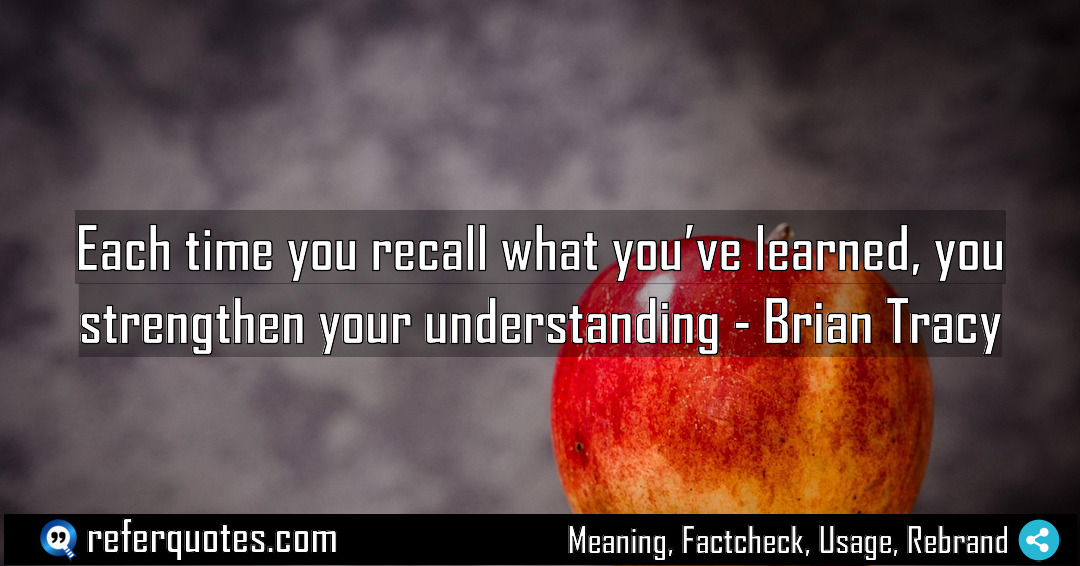Each time you recall what you’ve learned, you’re not just repeating. You’re actively rebuilding and fortifying that knowledge in your brain, making it stronger and more accessible. It’s the difference between a shaky scaffold and a solid building.
Share Image Quote:Table of Contents
Meaning
It’s simple, really. The act of remembering isn’t passive. It’s an active construction process that literally makes your brain’s connections to that information stronger.
Explanation
Here’s the thing most people get wrong. They think learning is like filling a bucket—you pour information in and it just stays there. But it’s not. It’s more like blazing a trail through a dense forest. The first time you learn something, you’re just hacking your way through, creating a faint, overgrown path. But each time you actively recall that information—without looking at your notes, just trying to pull it out of your own head—you’re walking that path again. You’re trampling down the weeds, widening the trail, making it permanent. That’s the strengthening. It’s the effort of retrieval that does the work. Passive re-reading? That’s just looking at a map of the trail. It feels productive, but it doesn’t build the muscle.
Quote Summary
| Context | Attributes |
|---|---|
| Original Language | English (4111) |
| Category | Education (342) |
| Topics | memory (55), practice (49), recall (4) |
| Literary Style | concise (466), scientific (57) |
| Emotion / Mood | calm (541) |
| Overall Quote Score | 81 (267) |
Origin & Factcheck
This comes straight from Brian Tracy and Colin Rose’s book, Accelerated Learning Techniques for Students. You’ll sometimes see this idea, this concept of ‘retrieval practice,’ floating around and attributed to others in the learning science field, but this specific phrasing is from their work, which really brought these evidence-based techniques into the mainstream for a lot of people.
Attribution Summary
| Context | Attributes |
|---|---|
| Author | Brian Tracy (375) |
| Source Type | Book (4617) |
| Source/Book Name | Accelerated Learning Techniques for Students (59) |
| Origin Timeperiod | Contemporary (1758) |
| Original Language | English (4111) |
| Authenticity | Verified (4617) |
Author Bio
Brian Tracy, a prolific author gained global reputation because of his best seller book list such as Eat That Frog!, Goals!, and The Psychology of Selling, and created influential audio programs like The Psychology of Achievement. He is sought after guru for personal development and business performance. Brian Tracy International, coaches millions of professionals and corporates on sales, goal setting, leadership, and productivity.
Official Website |Facebook | X | Instagram | YouTube |
Where is this quotation located?
| Quotation | Each time you recall what you’ve learned, you strengthen your understanding |
| Book Details | Publication Year/Date: 1999; ISBN: 978-1576751402; Last Edition: Berrett-Koehler Publishers, 1999; Number of Pages: 176 |
| Where is it? | Chapter 48: The Recall Effect, Page 231 / 176 |
